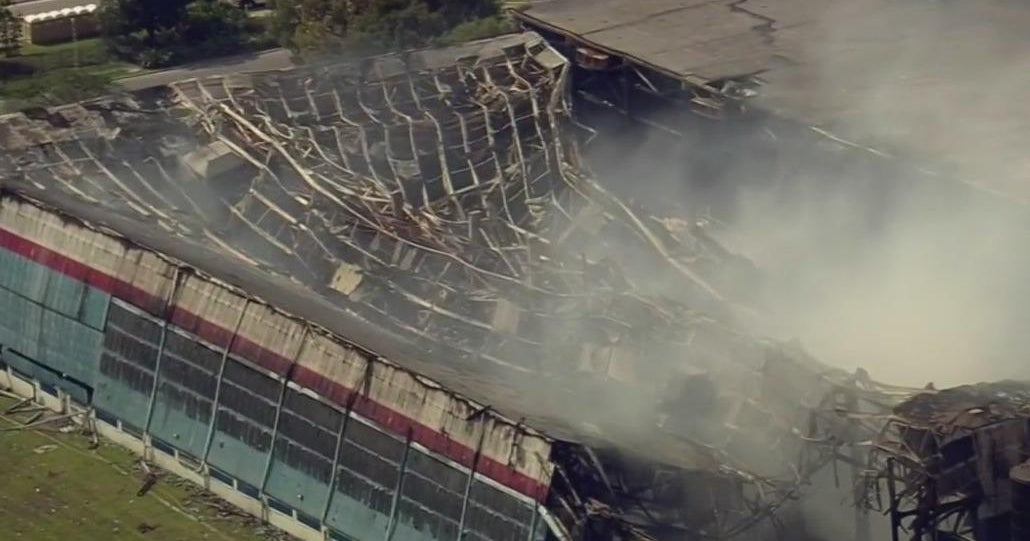Feds To Developer: Stop Planning Walmart In Rare Miami-Dade Forest
MIAMI (CBSMiami) -- Federal officials warned a developer who plans on building a Walmart and other businesses on Miami-Dade land to stop planning construction of the mixed use development until a survey is done of the endangered wildlife on the property.
The 140-acre property, which is considered one of the world's rarest forests, has endangered pine rockland and about 200 species.
According to our news partners the Miami Herald, in response to the plans, U.S. Fish and Wildlife Service sent a strongly worded letter to Palm Beach County developer Ram Realty Services that said at least eight threatened species, including the federally protected bonneted bat and two endangered plants could be on the land which is located near Zoo Miami.
Craig W. Aubrey, South Florida field supervisor for the U.S. Fish and Wildlife Service told the paper, the group should first obtain a federal permit before moving on with any work which could possibly threaten the protected species on the land.
Ram Chairman Peter Cummings responded in statement, saying he was reviewing the recommendation and plans to meet with wildlife officials.
"We will take no action that disturbs the natural environment before resolving the Service's concerns," the statement said. "The environment will be a valuable asset for the community we plan to create."
Walmart spokesman Bill Wertz also said he is dedicated to preservation.
"Walmart is one of the tenants of Ram Real Estate's Coral Reef Commons. As a company that has actively worked for nearly a decade with the National Fish and Wildlife Foundation to protect priority lands across the country, our expectation is that Ram continue working with the conservation community and regulatory agencies to ensure the nearly 50-acre nature preserve it has set aside provides protection to South Florida wildlife."
While Walmart promises to keep preservation a priority, some people are concerned the development will lead to a major disruption in the ecosystem.
Laura Reynolds with the Tropical Audubon Society told CBS4's Cynthia Demos, "Our imperiled land is being replaced by Walmart, it's sad."
Reynolds said even though only half of the land will be developed, it's a tragedy for the wildlife.
Ram agreed to set aside 40 acres for a preserve, however, there are plans for another 35 acres adjacent to the property to also be developed.
The property was sold by the University of Miami to Ram.
In addition to Walmart, an LA Fitness center, Chik-fil-A and Chili's restaurants along with about 900 apartments are in the plans to be built.
The plans are not sitting well with environmentalists and biologists.
A board member of Tropical Audubon and the North American Butterfly Association, told the Herald he wrote to Florida's lead federal wildlife agent to demand an investigation.
Jennifer Possley with Fairchild Tropical Gardens and a team were given the okay to rescue what they could.
"We've rescued 30 species so far but there are about 200 in there," said Possley.
Environmentalists are upset that UM would sell the land for development.
"For an institution of higher-learning I would have thought they would have been a little more sensitive to something that exists nowhere else in the world," said Dennis Olle with the Tropical Audubon Society.
UM issued this statement: Prior to the sale to Ram, the University executed a covenant running with the land in favor of Miami-Dade County concerning .....the Pine Rockland ... Ram ....will be required to abide by the Covenant and Management Plan thus ensuring the preservation.
Ram's CEO said the land, located at Coral Reef Drive and Southwest 127th Avenue. was chosen because it is a place people can easily walk to from nearby neighborhoods.
It was originally part of the 2,100 acre Richmond Naval Air Station and was mainly undeveloped since the University of Miami opened its South Campus in 1946.
UM tried to develop the land into an academic village in 2003, but the plans fell through.
The land is home to rare plants and butterflies – including the Bartram's hairstreak that is expected to be named to the endangered species list this summer.
In the past, Federal officials had said they're closely watching the project, but would only be able to get involved if federal money or property is involved, according to the paper. Sanctions can only be issued if endangered animals such as the eggs of a butterfly are killed.
The Miami-Dade county Natural Resources Planning Section Chief, Craig Grossenbacher, told the Herald, his hands are tied too because of an ordinance that allows officials to require forest protection only when the land is developed.
He added, getting the land set aside as a preserve is better than none.
Large swaths of the land no longer qualify as forest because during the years UM owned the land, outside species invaded much of the land and slash pines which blocked sunlight and choked out some species of plants.
(©2014 CBS Local Media, a division of CBS Radio Inc. All rights reserved. This material may not be published, broadcast, rewritten, or redistributed. CBS4 news partner The Miami Herald contributed material for this report.)
RELATED CONTENT:



